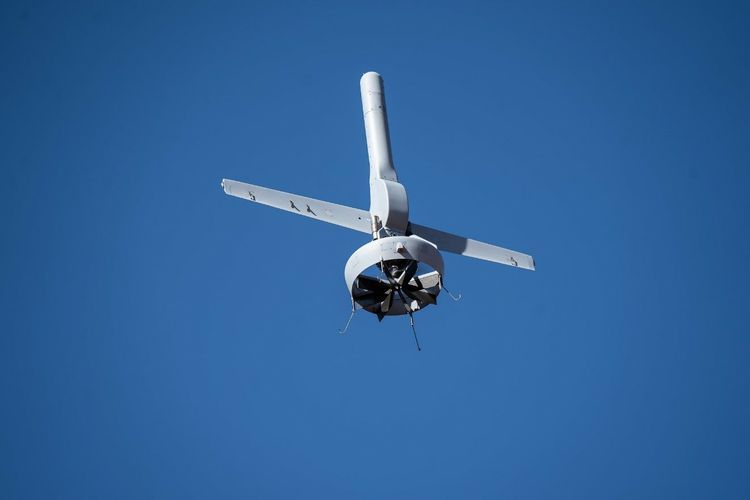
Northrop Grumman Corporation and Martin UAV have completed successful flight testing of a V-BAT Unmanned Aircraft System (UAS) with new features including GPS-denied navigation and target designation capabilities.
“The enhanced V-BAT offers a near zero footprint, flexible Vertical Take-Off and Landing (VTOL) capability that is based on a platform deployed operationally today, to address the U.S. Army’s Future Tactical Unmanned Aircraft System (FTUAS) mission,” said Kenn Todorov, sector vice president and general manager, global sustainment and modernization, Northrop Grumman.
“The team brings more than 30 years’ experience in the production, delivery and sustainment of UAS to support this critical mission today and into the future.”
For FTUAS, the U.S. Army is seeking a rapidly deployable, GPS-denied navigation-capable, expeditionary VTOL system capable of persistent aerial reconnaissance for the Brigade Combat Teams, Special Forces, and Ranger battalions.
The company’s offering is based on the Martin UAV V-BAT, a compact, lightweight, and easy to operate UAS. The V-BAT can be set up, launched and recovered by a two-soldier team in complex, confined environments, and is designed with sufficient payload capacity to carry a range of interchangeable payloads, including electro-optical/infra-red, synthetic aperture radar, and electronic warfare payloads.
Shield AI’s acquisition of Martin UAV will enable rapid development of GPS-denied and autonomy capabilities for V-BAT through the future porting of Shield AI’s Hivemind autonomy stack onto V-BAT.












